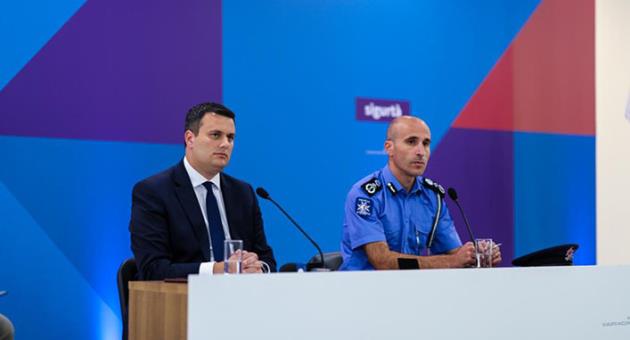
That looks good. It’s meant to. It’s meant to rebuff the suggestion that this would be a whitewash, that this would be a case of the police investigating itself. Here’s a retired judge, exactly the sort of guy you’d hope for to ensure a proper process, someone looking at this from the outside.
Now scratch the surface.
The retired Judge is Franco Depasquale. This is not going to be a discussion of his personal integrity or competence. That’s irrelevant because it doesn’t matter if he had the wisdom of King Solomon. What defines what he’ll be doing is in the law within which he must operate and that’s going to be very limited.
They didn’t hire Judge Franco Depasquale to conduct an inquiry. They referred the case to the “Independent Police Complaints Board” which is set up by the Police Act and which now is chaired by Judge Franco Depasquale.
What the Independent Police Complaints Board can and cannot do is defined in the law. It can “expeditiously inquire into and report on any matter regarding the conduct of the Force,” which is fantastic.
But here’s what it cannot do.
It is not allowed “to inspect or demand the production of any exempt document”. I’m going to list examples of exempt documents the Inquiry Board is not allowed to see or even ask for and how this makes the whole process completely irrelevant.
The Board won’t be allowed to see any document that if disclosed would “be reasonably expected to cause damage to the … international relations of Malta.” The allegation here is the Malta police tried to undermine their German colleagues and to protect a fugitive and alleged evader of German federal taxes. Any evidence that might confirm that, is of course reasonably expected to cause damage to the international relations of Malta.
By extension the Board won’t be allowed to see any document that if disclosed “would divulge any information or matter communication in confidence by … an authority of a foreign government.” It would be unlawful for the Board to even look at the German arrest warrant at the heart of this issue or any supporting documentation that came with it.
The Board won’t be allowed to see any document that if disclosed would “prejudice the conduct of an investigation of a breach or possible breach of the law”. This incident indeed happened in the context of an ongoing investigation. After they heard Iosif Galea was arrested by the Italians, the police issued a European arrest warrant against him because they said they wanted him here. There’s a suggestion that the arrest warrant issued by the Maltese police was a desperate attempt to protect a Joseph Muscat associate from arrest and prosecution in Germany. The Board won’t be able to confirm whether the Maltese investigation into Iosif Galea was in any way pertinent or serious.
The Board won’t be allowed to see any document that if disclosed would “prejudice the fair trial of a person,” which in principle is fair because everyone is entitled to a fair trial but in this context can and likely will be used as an excuse to withhold from the Board any information it might need to understand why Iosif Galea was allowed to travel.
In fact, put simply all the excuses in the law that allow the government to refuse reasonable questions put to it by the press and the public under the Freedom of Information Act are applicable in a mandatory manner on the so-called Independent Police Complaints Board. They cannot know more than you or I can.
It doesn’t matter if it’s an ex-judge, a beach model, or a particle physicist doing the inquiry. They’re not allowed to see what you’re not allowed to see.
Now all this can be helped. The government could have appointed the very same Judge Franco Depasquale to inquire into this incident under the Inquiries Act, instead of his capacity as Chairman of the statutory board set up by the Police Act. While inquiring into “the conduct of public officers, or of officers or servants of a statutory body,” (and no exception is made for the police) a Board set up under the Inquiries Act would be entirely able to review documents that above are ruled out from the visibility of the Independent Police Complaints Board.
The Board would still need to respect anyone’s right to a fair trial of course, and they may have to be circumspect with what they include in their final report, but they can look at the evidence and then make up their minds.
If the government wants to seriously understand why Joseph Muscat’s travelling buddy Iosif Galea was allowed to travel by the police who ignored for months a European arrest warrant against him, they should set up an inquiry under the Inquiries Act. If the government wants to seriously understand. If the government was serious. If.
In the meantime, they should also consider leaving ex-cop Michael Cassar who sits on the Independent Police Complaints Board and in this case will be asked to investigate the investigation that has some history from the time he was police chief. It couldn’t be more awkward.